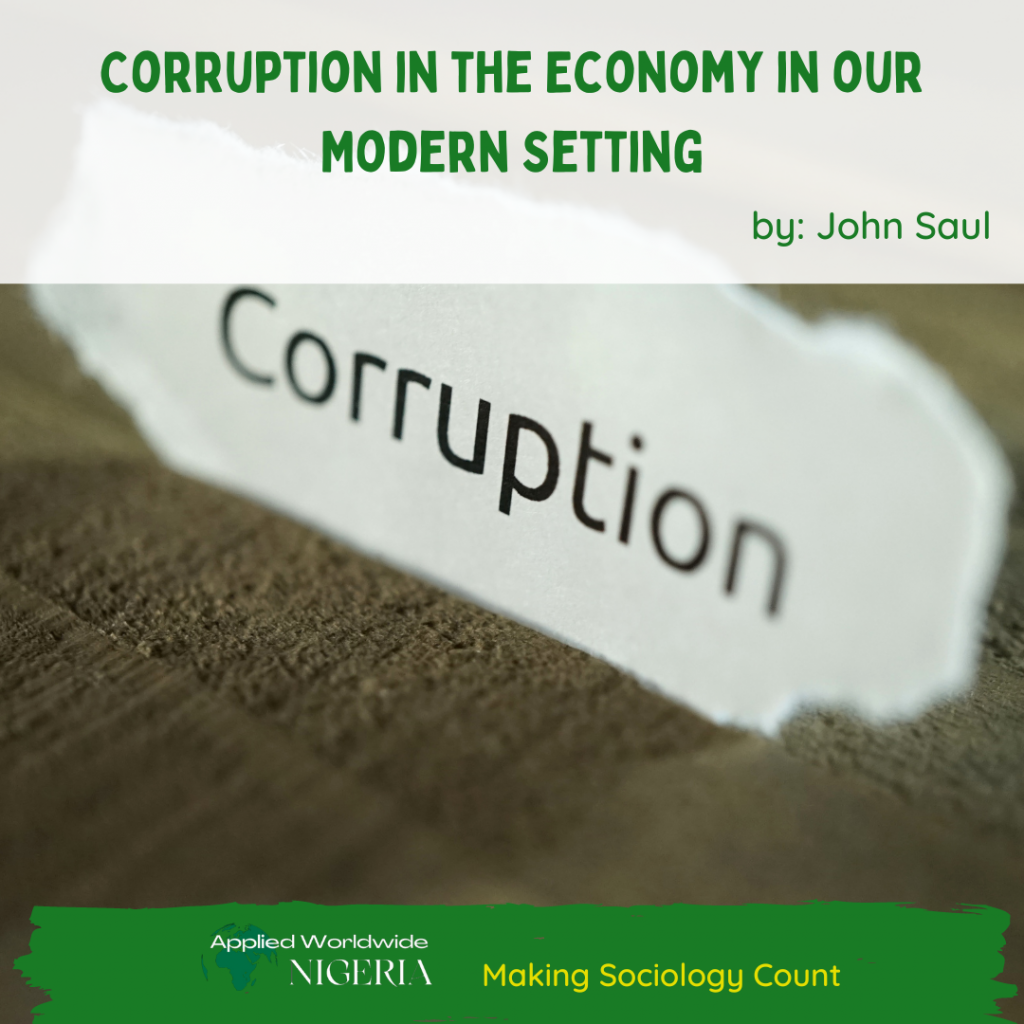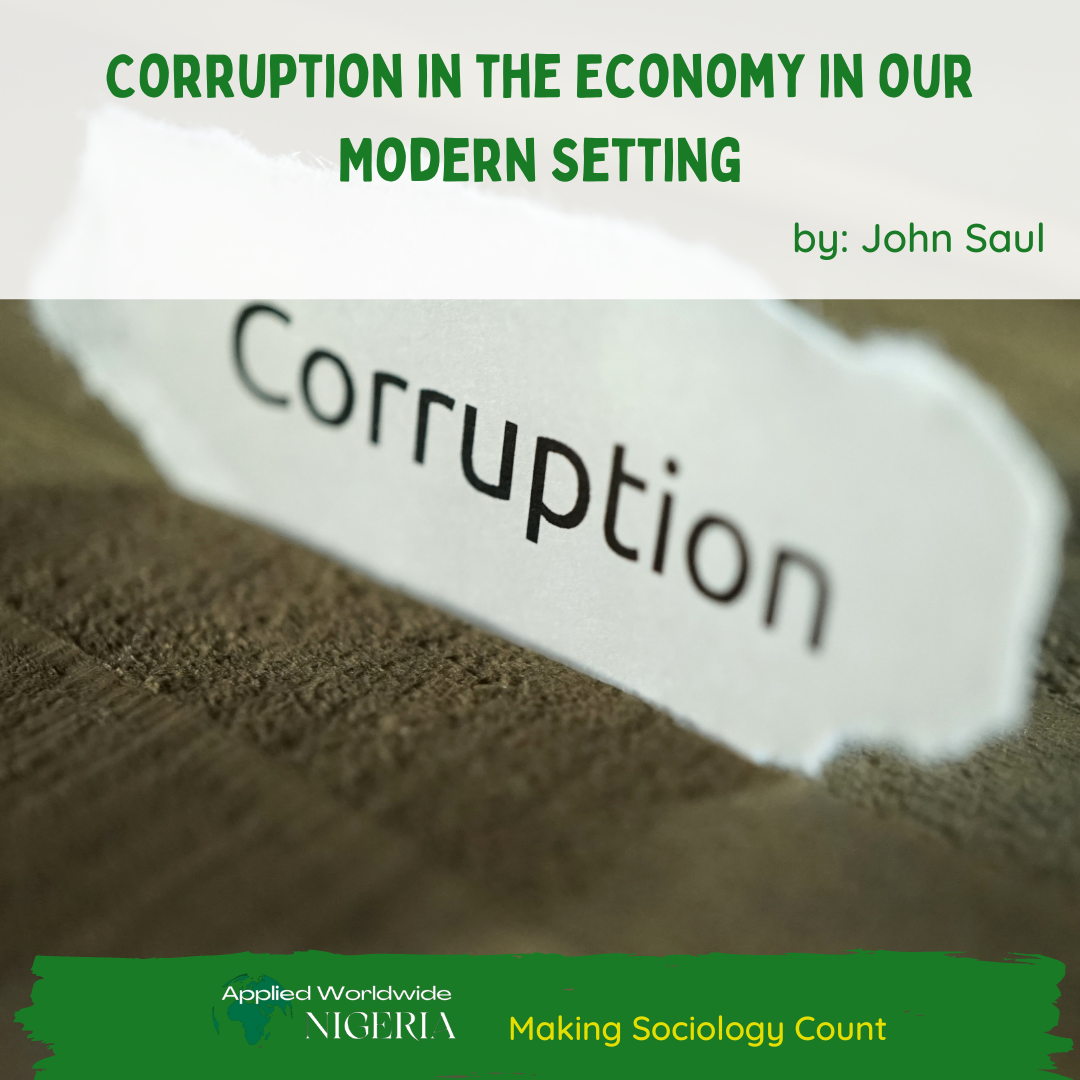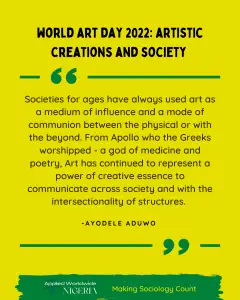
Corruption in the economy is a phenomenon that has been in existence since when man lived in tribal society, which is one of the earliest forms of society man lived in. Corruption has had a long history from when it was first documented by ancient Egypt in its judiciary till date. The concept of Corruption has also appeared in Greek and Chinese myths.
Corruption is now a common occurrence all over the world in different forms at all levels of society. Its prevalence has been more pronounced in developing countries of Asia, Africa, and South America. Corruption has left most of those places in turmoil. The fight against corruption is as long-lived as itself but it seems unbeatable as of now. Research and observation have led some people to believe that democracy and technology have aided in the paroxysm of corruption in our modern time.
The advance in technology and its availability has led many people to think that the fight against corruption will finally be won but that is not the case as we see. Technology has only made it easier for corrupt individuals to engage in corrupt practices with inventions like wired transfers and other quick means of transporting stolen money or looted items from one place to another. A public official in a pre-industrial setting can only embezzle money by transporting by slow unreliable means and under the cover of darkness but such is not the case today as it can be done in the snap of a finger.
Democracy has aided corrupt men to be in places of authority faster than in days gone by through the periodic voting process done in democratic countries. Corrupt men now gain access to power through corrupt ways and then use their power and influence for more dishonest practices. Others envy them and also try to gain access to power through corrupt means. It goes on and on, in an infinite cycle.
What is Corruption in the Economy?
Corruption is a word of common knowledge amongst people but its meaning has eluded some. Corruption derives its origin from the Latin word ‘corruptus’ which is the past participle of another latin word ‘corrumpere’ meaning ‘bribe’ or ‘mar’. Simply put, corruption means to bribe or mar. Oxford dictionary has defined corruption as “dishonest or illegal behavior, especially of people in authority”. What are those illegal behaviors? Bribery, embezzlement, theft, fraud, graft, extortion, and blackmail among others. Today these forms of dishonest acts can be found in all corners of the world. Corruption also comes on different scales from petty theft and bribery to well-planned and systematic looting and embezzlement.
In our modern setting, the means a corrupt individual has to carry out dishonest acts are becoming more sophisticated while the means to curb such practices are stagnating. In some cases the means to fight corruption is available but the willingness to do so is non-existent. People have developed apathy towards fighting corruption mostly because of fear of corrupt individuals especially those in authority or those who have the ability to cause harm and also because people now don’t care what others do.
Though most definitions of corruption lay emphasis on people in authority as the main contributors to corruption today. Many cases arise where persons who are not in any position of authority engage in corruption. Reports of looting, blackmail, theft, and fraud done by individuals who are not among the set of people regarded as high class or ruling class in society are being brought into news headlines almost every other day.
Man by nature is not content with what he/she has which will lead to a search for more, and where the legal means to get commodities are low or not easily attained, man tends to search elsewhere thus leading to corruption. There are many known causes of corruption: poverty, low job opportunities, high cost of living, low pay scales, Illiteracy, and lack of transparency and honesty at all levels and units of society.
Corruption tends to be more pronounced in developing countries because of the lack of basic needs and low standard of living prevalent in such countries. Developed countries are also not exempted from corrupt practices but it tends to be low in occurrence as opposed to developing countries.
Economic meltdown, bankruptcy, increase in the price of foodstuffs, strikes, and low cash flow are all news headlines seen almost every day. Developed countries falling into problems, developing countries’ growth stagnated, poverty is on the increase, and crime is in every dark corner of every town and city. Such is the outcome of corruption brought in a world where honesty and transparency don’t matter anymore, where corruption has now become the order of the day.
This modern day is marked by corrupt leaders and countries who don’t care about the well-being of their citizens and corrupt people who only care about their own personal selfish gain. The modern setting which was predicted by a few optimistic social analysts in the 70s to be the era where the fight against corruption will finally pay off but now it is seen that people show a nonchalant attitude towards fighting corruption.
Key to curbing corrupt practices
Though problems arise every day, though corruption seems to rule the world, it is not the end. With the growth in the strength of corruption, the same way grows opportunities for solutions. Technology which gave corruption an easier mode of infiltrating society came up with solutions. Mass enlightenment about the effects of corruption would go a long way to stopping corruption and technology has made it so possible with little effort. Billboards being erected by enlightened individuals have contributed much to the fight around the globe. Campaigns are also a suitable solution that can stunt the growth of corruption. Wired transfers could be monitored and suspected corruption-related crimes reported. ‘Honesty and transparency should be the motto of all those in authority. Jobs should be created as a means for man to get his needs settled, and the pay scales should increase too.
There is no single solution but let’s keep going, for while corruption may be the order of the day now, with time it would be forgotten like a bad day.






